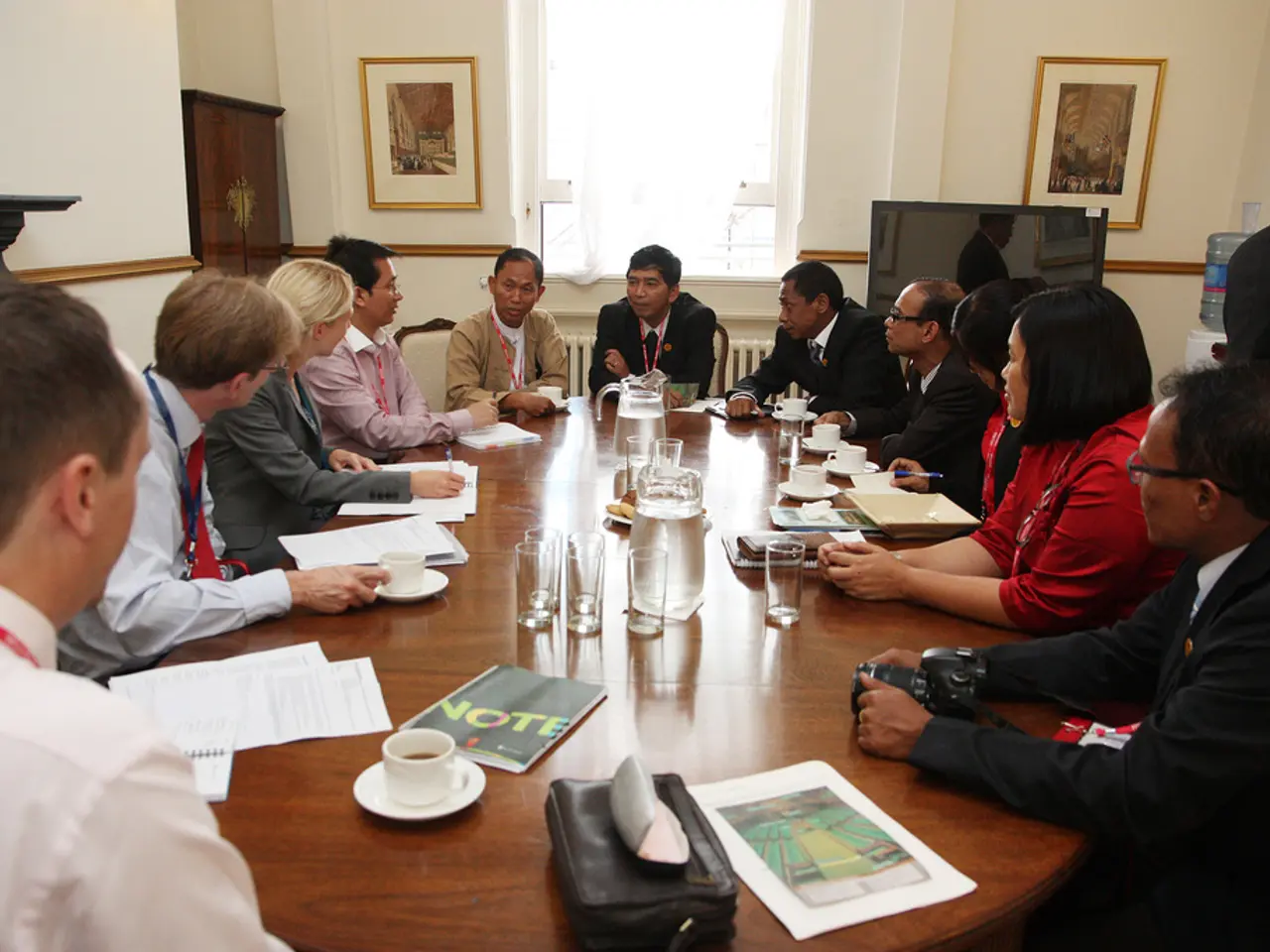Attending meetings silently is an acceptable and valid means of contributing
In the realm of professional interactions, the art of contributing effectively in meetings is a skill highly sought after. It goes beyond just speaking and involves a variety of strategies that can enhance your participation and the overall productivity of the group. Here's a rundown of some key strategies to help you make a valuable impact in meetings.
**1. Active Listening**
The first step towards effective contribution is active listening. Pay attention to what others are saying, and avoid distractions like checking your phone or daydreaming. Reflect and summarize what has been discussed to ensure understanding and to ensure that everyone is on the same page. If you're unsure about something, politely ask for more information to facilitate better group understanding.
**2. Preparation**
Preparation is key. If pre-work is assigned, review it thoroughly and come prepared with thoughts or questions. Familiarize yourself with the agenda items to contribute meaningfully. Think about what questions you want to ask and how you can contribute to the discussion.
**3. Engagement**
Engage non-verbally by using positive body language such as nodding or making eye contact to show engagement. Take notes on key points and decisions to refer back to later or to share with others. If possible, use a whiteboard or digital collaboration tools to visually brainstorm ideas.
**4. Facilitation**
As a meeting participant, you can also facilitate discussion. Ask others for their input or opinions to foster a collaborative environment. Suggest parking lot items for side discussions to keep the meeting focused. Suggest structured approaches like SWOT analysis or cost-benefit evaluations to guide discussions towards actionable outcomes.
**5. Follow-Up**
After the meeting, take responsibility for any actions assigned to you and update the group on progress. Volunteer to compile and distribute meeting minutes or action items to ensure everyone is informed. Preparing the Minutes of the Meeting (MOM) after the meeting and ensuring a clear summary, important decisions, responsibilities, and due dates can make you the go-to person following the meeting.
Becoming a good Notetaker requires quick comprehension, real-time note-taking of key points, and the ability to facilitate and direct discussions. The Notetaker role is crucial as they take notes during the meeting, prepare the MOM, and distribute it to all attendees.
In virtual meetings, it is important to avoid talking over each other, leading to chaos. The Leader and Facilitator roles should be filled by someone with knowledge or understanding of the subject. The more experienced one becomes in attending meetings, the more confident they may feel about contributing.
The epidemic forced organizations to think of new ways of communicating and carrying out their business despite restrictions. Virtual meetings have become the backbone of remote work, making communications easier and more convenient. Contributing to a meeting can involve revisiting known information, triggering discussions about further learning.
By incorporating these strategies, you can contribute effectively in meetings beyond just speaking, enhancing both your participation and the overall productivity of the group.
- Engaging in remote work, effective participation in meetings can be a great opportunity for education-and-self-development and personal-growth by actively listening, preparing, engaging, facilitating, and following-up.
- Continuous learning is fostered in meetings as they offer a platform for revisiting known information, triggering discussions, and broadening one's understanding, making them valuable not just for professional growth, but also for personal development.




